Military doctors gain from Sudan experience
Updated: 2011-12-12 07:14
By Xu Wei (China Daily)
|
|||||||||||
ZIBO, Shandong - For doctors in People's Liberation Army (PLA) military hospitals, taking part in a peacekeeping mission in South Sudan is about as close to being in a war zone as they can come.
Since 2005, the PLA Jinan Military Area Command - which is mainly responsible for defending Shandong and Henan provinces - has assembled a medical team composed of 60 members and dispatched it every eight months to give care to 2,000 peacekeepers living in a United Nations camp in South Sudan's Wau county.
Many who go on the trips say they gain an irreplaceable experience.
"In our normal lives, we cannot acquire the mentality of someone who is exposed to dangers all of the time," said Han Bing, political commissar of the No 148 hospital of the PLA, who came back from a peacekeeping mission in March.
The No 148 hospital is one of 16 hospitals in the military region that have sent doctors on peacekeeping missions to South Sudan. So far, half of the doctors in the hospital's field-rescue team have participated.
"We tried to send our best doctors to the UN camp so that they can benefit from having experiences overseas and in a war zone," said Li Gang, vice-president of the hospital.
Although the second Sudan Civil War ended with the signing of a peace contract in 2005, many Chinese peacekeepers have found the danger and loneliness they feel in that country give them a notion of what it would be like to be in a war.
Han said he was shocked to learn how little guns were regulated in war-torn South Sudan. He witnessed people carrying them in many places, including markets and farmland.
"You never know what will happen," Han said. "And the walls of the UN camp are so low that it would be easy to fire a bullet over them."
Few of the doctors have found the mission to be a test of their medical abilities; many of them are in fact less busy at the UN camp than they were working in hospitals at home.
In China, military hospitals are open to the public and are often preferred over local hospitals.
But that is not to say that the doctor' duties in Sudan are meager.
"Our primary task is to ensure that all the peacekeepers in the UN camp receive medical care," Han said. "We also offer group consultation to the locals. But we cannot give them treatment since we only have a fairly small supply of medicine."
All of the medicine they use is shipped from China.
Many daily necessities, in contrast, are acquired from local tribes.
"We offer them medical consultation at times and, in return, they give us their cattle waste so we can grow vegetables in the camp yard," Han said.
"The tribe chief would bite into a cassava and then give the rest to me. I hesitated, and then took a larger bite. This is their way of showing their hospitality."
The doctors also work closely with local hospitals.
"They got all their equipment from UN donations and did not know how to use it," Han said. "So we gave them lectures on how to use CT machines and other equipment.
"Normally the doctors were not allowed to leave the camp," Han said. "And we have to watch out for symptoms of depression, even among the doctors."
Another concern comes from the possibility of outbreaks of malaria or other diseases.
Han said when the peacekeeping missions began, half of the Chinese that went on them - including the doctors - came down with malaria.
Although malaria is not always fatal, "it takes a long time to recover from it", he said.
To gain protection from contagious diseases, the doctors and other peacekeepers have taken a large variety of vaccines. That treatment does not come without consequences.
"After you take some vaccines, you cannot have a child for three years," he said.
Hot Topics
HIV/AIDS, Egypt protest, Thanksgiving, climate change, global economic recovery, home prices, high-speed railways, school bus safety, Libya situation, Weekly photos
Editor's Picks
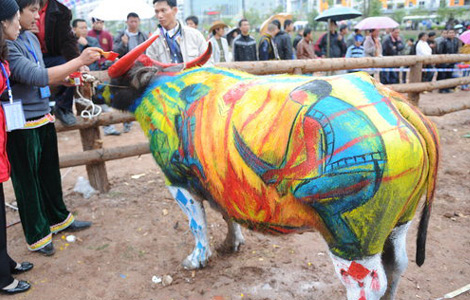
|
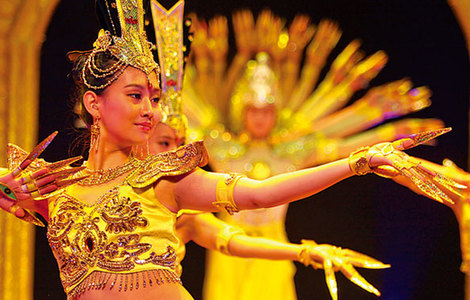
|
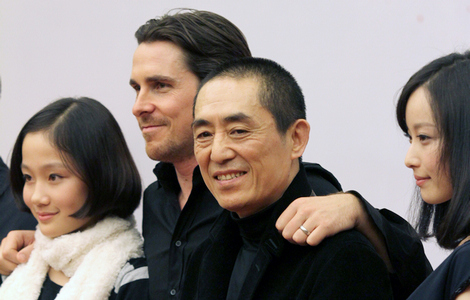
|
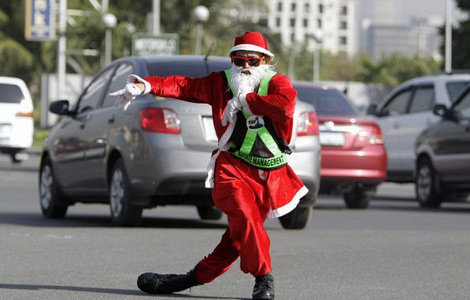
|
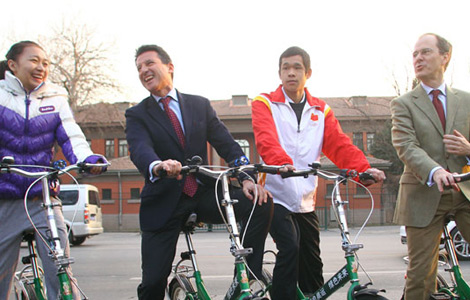
|

|







